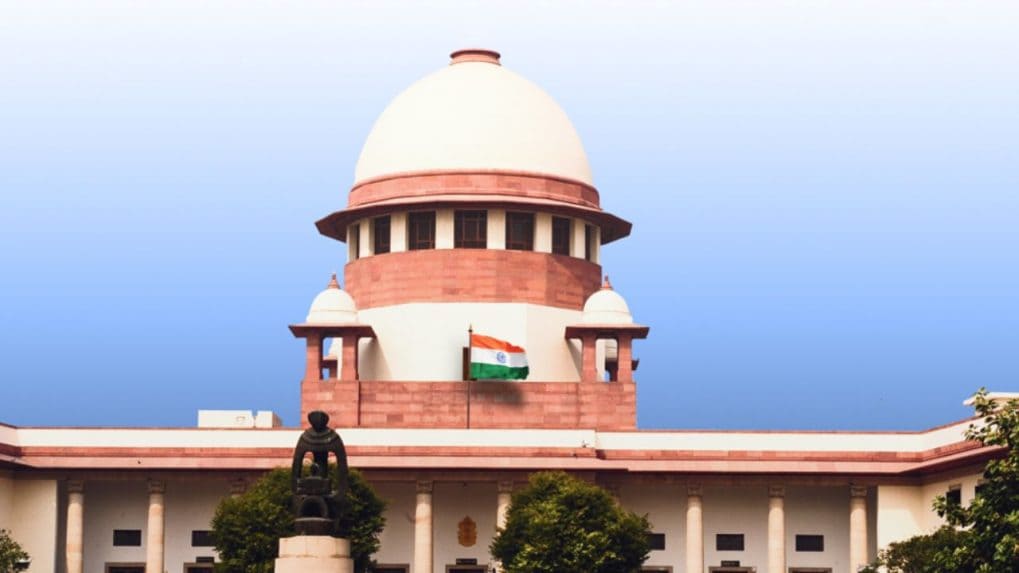Digital
Why OpenAI is hiring 100 ex-bankers: Inside the ChatGPT-maker's secret project to automate Wall Street's grunt work

As the Supreme Court prepares to hear a crucial constitutional challenge to the Promotion and Regulation of Online Gaming Act, 2025, the Akhil Bhartiya Grahak Panchayat (ABGP) has formally filed an application to intervene in the proceedings. The consumer body has urged the court to allow it to participate as a respondent, citing its long-standing campaign to curb the harmful social and economic impact of online money gaming in India.
The intervention plea comes in the transferred case Head Digital Works Pvt. Ltd. & Anr vs Union of India, which consolidates multiple writ petitions originally filed in the High Courts of Karnataka, Delhi, and Madhya Pradesh. The Union government’s transfer petition was allowed by the Supreme Court on 8 September 2025, ensuring that all constitutional challenges to the new gaming law are heard exclusively by the apex court.
The ABGP’s application cites multiple reports highlighting the devastating impact of online gaming across India. It further states that mental health experts have warned that online gambling is becoming a serious public health challenge. A 2023 editorial in the Indian Journal of Psychiatry titled “Online gambling and suicide: Gambling with lives” emphasized that gambling addiction has one of the highest suicide attempt rates among all addictions, calling for population-level interventions rather than relying solely on individual responsibility.
The application highlights how daily fantasy sports and similar platforms use psychological tactics to foster compulsive behavior—instant gratification cycles, targeted ads, and bonus offers. Mobile accessibility enables impulsive betting anywhere, anytime, amplifying addiction risks, especially among youth.
Celebrity endorsements and influencer campaigns have further normalized gambling-like behavior. ABGP notes that film stars and athletes earn crores endorsing gaming platforms, misleading millions of young people into perceiving these games as harmless entertainment or easy ways to make money.
ABGP’s petition also frames unchecked online money gaming as a national security concern, pointing to its use for financial fraud, money laundering, and potential terror financing. It warns that weakening the core provisions of the Act—Sections 2(1)(g), 5, 6, 7, and 9—would render the law “toothless” and expose the country to strategic vulnerabilities.
The ABGP has requested the Supreme Court to implead it as a respondent in the transferred case to present its perspective on the societal harms of online gaming. It stresses that its intervention is bona fide and necessary given its longstanding advocacy and the national importance of the issue.
The Supreme Court on October 6 had heard a batch of petitions challenging the Promotion and Regulation of Online Gaming Act, 2025, a law that crippled the real money gaming industry. The law bans all forms of games both skill and chance if played for stakes.
A bench comprising Justices J.B. Pardiwala and K.V. Vishwanathan heard the petitions filed by gaming companies, including Head Digital Works, the parent company of real-money gaming platform A23, Clubboom 11 Sports and Entertainment Pvt. Ltd, Bagheera Carrom (OPC) Pvt. Ltd. and others. The apex court’s move follows weeks of legal uncertainty for online gaming operators, who argue that the new law is crippling the sector.
Aryama Sundaram, senior counsel appearing on behalf of Head Digital Works, made a fervent request that the matters be listed for final hearing at the earliest as the business of the petitioners has come to a standstill and many employees have been laid off. He suggested that the matter be taken up for final disposal after completion of pleadings rather than hearing on interim relief, noting that arguments on interim relief would inevitably cover the same ground.
Justice Pardiwala queried whether the issues in the Tamil Nadu and Karnataka government’s appeals in the Gameskraft batch of cases would overlap with this matter and if that would have any bearing here. The counsels averred that to the extent of legislative competence, it would have a bearing, but there are other grounds of challenge to the legislation.
Justice Pardiwala verbally remarked that it would be better if the matter is mentioned before Hon’ble the Chief Justice of India and that it would be desirable for the same combination (Justices Pardiwala and Mahadevan) that heard the Gameskraft batch also hear this matter.
In a wide-ranging interview with Storyboard18, Sorrell delivers his frankest assessment yet of how the deal will redefine creativity, media, and talent across markets.